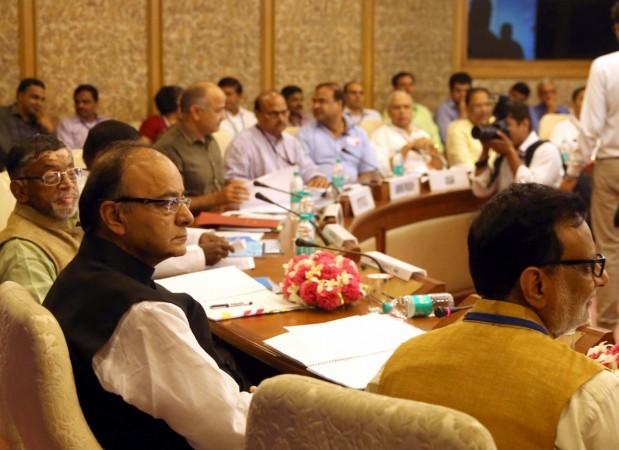
The ninth meeting of the Goods and Services Tax (GST) Council on Monday made significant headway on the contentious issue of dual control of assessees, raising hopes of a rollout by July 1, 2017, after missing the earlier deadline of April 1, 2017. The next meeting on February 18 will be of equal importance.
"The issue of cross empowerment and dual control was discussed for the entire day, and we were able to arrive at a decision. The taxation base will be shared between the assessment machinery of the Centre and the States," Finance Minister Arun Jaitley said at a press conference in New Delhi.
At the Monday meeting, the GST Council agreed on the basis of assessment of taxpayers under the new indirect taxation regime.
Taxpayers with a turnover of up to Rs 1.5 crore will be assessed for scrutiny and audit by the Centre and the states, with 10 percent of the cases going to the Centre while the rest will fall under the states' jurisdiction.
In case of turnover above Rs 1.5 crore, it will be 50:50, the minister said at the press conference.
For transactions over waters, the GST Council saw the Centre surrendering its constitutional rights. "Area of 12 nautical miles into the territorial waters is a part of the Centre's territory. But as per convention, the States will be empowered to collect tax on any economic activity there," Jaitley said.
On February 18, the GST Council will take up the CGST to be passed by the Parliament during the budget session.
"Next critical aspects to be watched out is GST Council's discussion on supporting GST legislations, publication of rules and GST rates. Clarity on these aspects is critical for India Inc to analyze GST impact on their business to realign their systems, processes, operations, pricing structures and logistics by the go live date," Rajeev Dimri, leader, Indirect Tax, BMR & Associates LLP, said in a note.
Jaitley also said that the power to levy and collect tax under the Interstate GST (IGST) will be with the Centre.

















